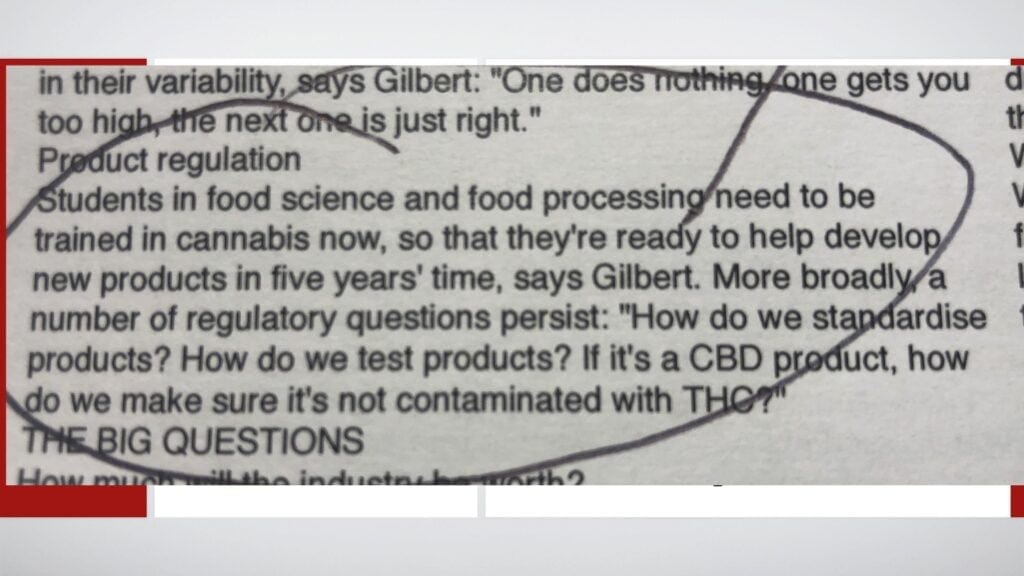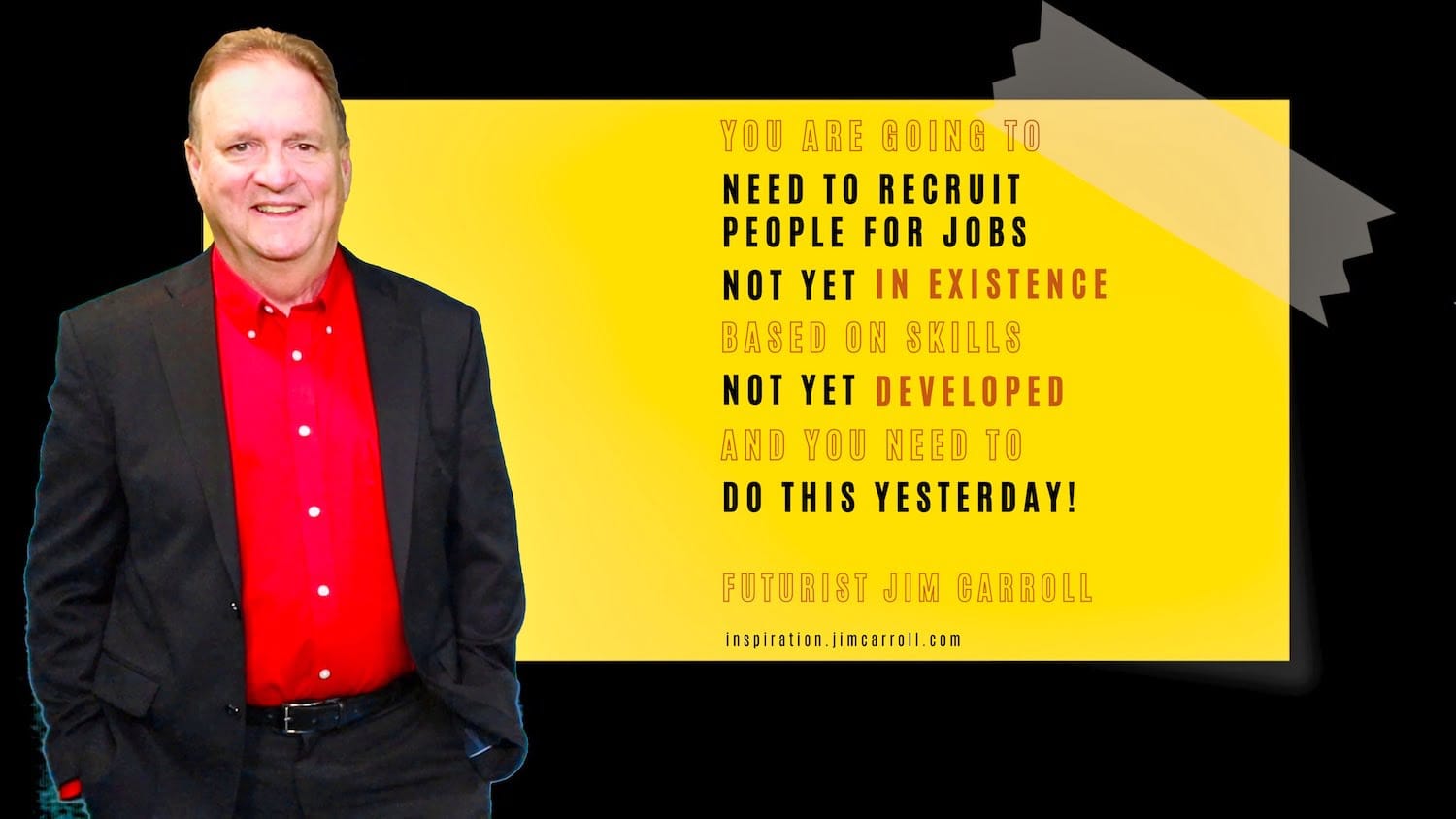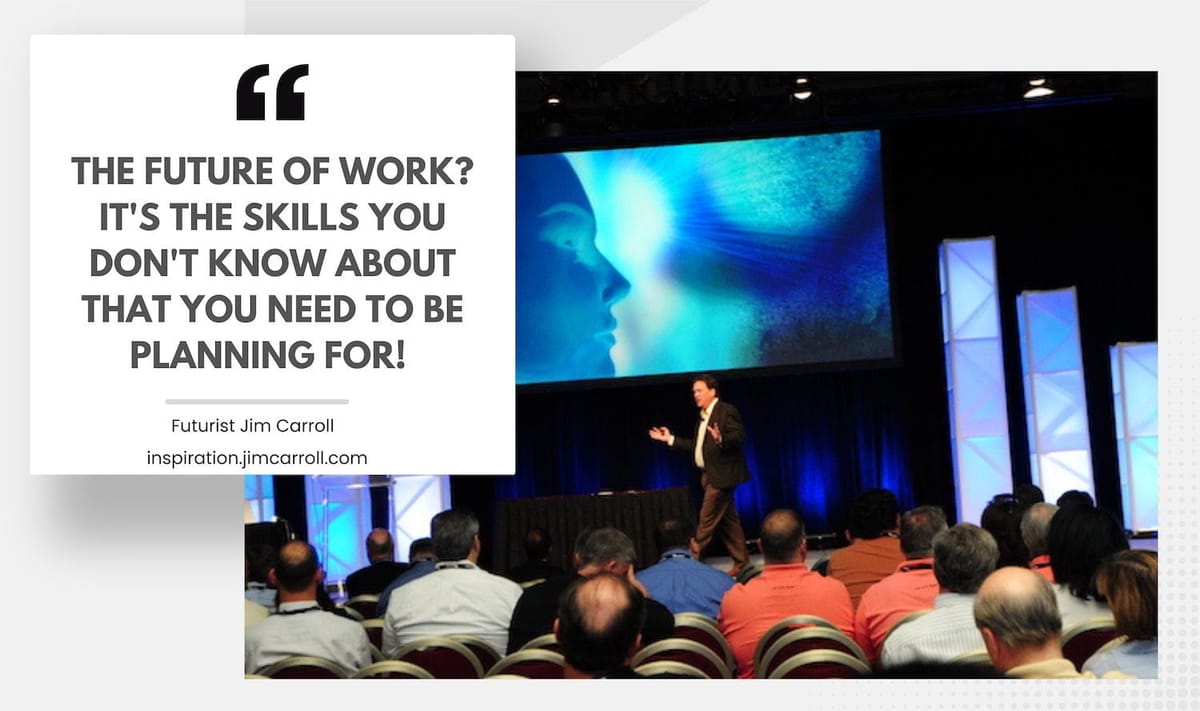What can the legal cannabis industry teach us about the future? Quite a bit about the future of the workforce and skills. As I will often joke on stage, most major food companies will have to hire cannabis experts in the near future to help them deal with their development and production of gummy bears! Here's a clip to get you thinking!
The slide I used? Right here! In article on the future of cannabis in the drinks industry, it was suggested that "students in food science and food processing need to be trained in cannabis now, so that they're ready to help develop new products in five years' time" is from Drinks Magazine, published in 2018.

The point? Organizations always need to be thinking RIGHT now about the skills they might need in the future. Borrowing on one of my favourite phrases, our reality is that we need to prepare for jobs that do not yet exist, for careers not yet invented, for knowledge not yet in existence, and for industries yet to be defined. That is the future of work!
Watch the video clip - when I put this slide about cannabis up in front of a bunch of senior executives for major food companies, they all quickly came to agree in a follow-up discussion that this was one of the biggest issues they are faced with. The context of your future? It's to be found in another one of my previous Daily Inspiration posts. "You are going to need to recruit people for jobs not yet in existence based on skills not yet developed and you need to do this yesterday!" - Futurist Jim Carroll

It’s the jobs that do not yet exist that you really need to prepare for! And the trend is very real.
There was a lot of different content to each keynote, but I opened both events with a key bedrock quote that I've used for almost every keynote for close to 25 years - that 65% of kids in preschool today will work in jobs or careers that do not yet exist. Here's that opening in context:
I originally came across the prediction way back in 1997 in an Australian study; the original source material has long since disappeared.
Since then, this statistic has become a bit of a meme in the education, skills, HR, and knowledge industries; it was even often quoted throughout the Bush and Obama administrations. The fun part is that over the years, a few groups have tried to track down the source of the quote, and have made their way back to me; my original citation source has long since disappeared. Some take umbrage with the observation, demanding proof and scholastic attribution, which seems kind of quaint in the world of today in which it seems anybody can make up anything they like.
That key statistic has been one of three observations that I've often used to set the tone for my keynotes and the idea of accelerating change - the other two being that 1/2 of the knowledge for a typical college degree is obsolete or revised by the time of graduation and that most products are now obsolete within just a few years of release. Here's another highlight clip of my first few minutes on stage at a manufacturing event in Chicago, setting the tone early on:
In New Orleans, I kicked things up a notch - check out this bold assertion as to what we really need to do to align to a faster future.
New jobs? New careers? I have no problem suggesting a few; there are dozens. Here are five to start your day thinking about:
- knowledge farmers: exponential knowledge growth, in part driven by social networking, is leading to information overload everywhere. KF's are the uber-editors who immerse themselves in global data feeds, extracting relevant knowledge and insight from data torrents. They're the new editors, and it's their ability to apply their insight to knowledge-rivers that will place them in high demand.
- location intelligence professionals: see my earlier post on this. I've been talking about this for years. These are the folks who are linking GoogleMap-type data to existing business processes and services, and who are building entire new global infrastructures on spatial information.
- mash managers: as innovation moves from the core to the masses, creative insight is emerging from those who learn how to take multiple new ideas, and input them into the innovation process. These people synthesize ideas from multiple sources, study markets, interpret insight, and decide how to re-evolve a product, service, brand, marketing campaign, or just about anything else. Their focus in "constant innovation," and it's their idea-immersive environment that drives them forward.
- tactical controllers: in this wildly information-chaotic world, some people are busy searching for the next big thing. A new and very real profession emerges with those who step beyond the "minutiae-of-the-moment" and instead focus on providing tactical, strategic guidance on what-to-do-in-the-next-moments ... they are the PR expert who knows how to steer the company through a global viral idea meltdown; the brand expert who knows how to re-energize a brand next week; the individual who studies what the global knowledge farmers are revealing, and who understands what to do next as a result.
- analytical architects: the world's big problems are being solved by those who are learning to throw sophisticated solutions at complex problems. These are the folks who will architect the smart-highway infrastructure; load-balanced two-way energy grids; just-next-week manufacturing processes for the era of the customization of one. They've combined education in combinatory theory with big server farms to generate the new smart infrastructure that is set to envelop us.
Reality? My son works as a drone pilot - a location intelligence professional. A.I.? Check out the number of articles for 'prompt engineers,' another new fast-emerging skill requirement.
The future? It's big, it's bold, and it's happening all around you!
Jim Carroll has always believed that at the same time existing jobs and careers disappear and become irrelevant, there are many new jobs and careers emerging to pick up the slack. He's never bought into the traditional labor force narrative and believes that many organizations are not focusing on the right issues when it comes to the future of work.
Thank you for reading Jim Carroll's Daily Inspiration. This post is public so feel free to share it.

